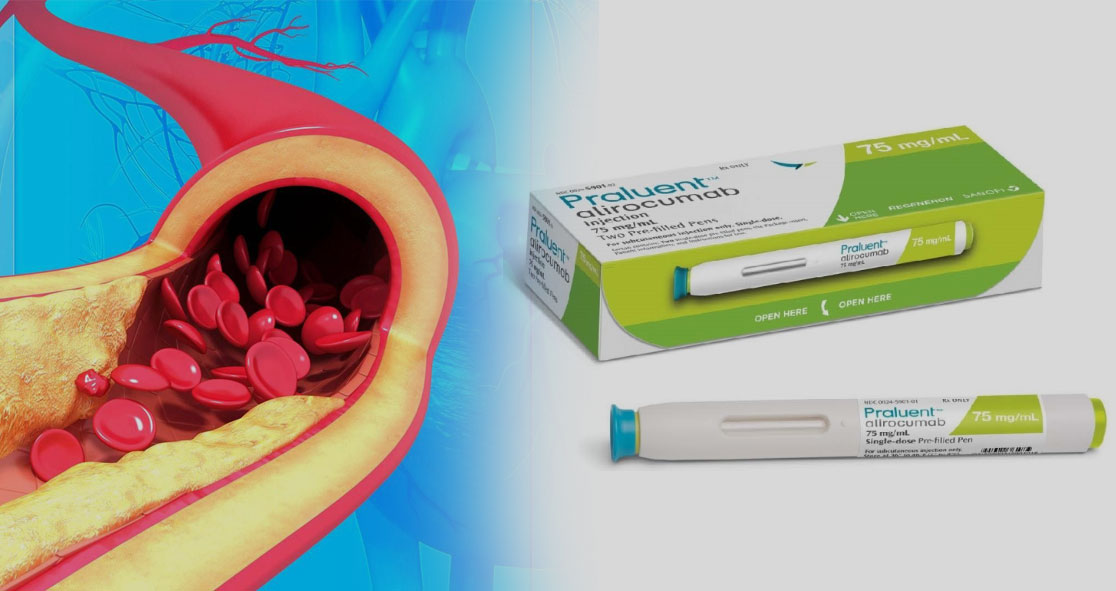Praluent is an injectable prescription drug used in individuals with cardiovascular disease and high blood cholesterol (hypercholesterolemia).
The drug reduces the risk of heart attack, stroke, and certain types of chest pain conditions in people with cardiovascular disease. Praluent is also used alone or together with other cholesterol-lowering medicines in adults with high blood cholesterol, reducing reduce low-density lipoprotein (LDL) or bad cholesterol.
In addition, the drug is used to treat primary hyperlipidemia, including heterozygous familial hypercholesterolemia, and homozygous familial hypercholesterolemia.
Praluent comes as an injection, containing the active drug alirocumab, a biologic medication. It belongs to a group of drugs called PCSK9 (proprotein convertase subtilisin/kexin type 9) inhibitors. Please note that Praluent is not available in a biosimilar form.
Another drug that belongs to the same class of medications is Repatha (evolocumab). Both Praluent and Repatha come as a liquid solution that is given as an injection under your skin.
The Food and Drug Administration (FDA) first approved Praluent in July 2015. Sanofi, a French multinational healthcare company, manufactures the drug.
Like most synthetic drugs, Praluent may cause mild or serious side effects. It may cause mild common cold symptoms, such as sneezing, sore throat, and runny nose. The drug may also urinary tract infection (UTI), diarrhea, cough, muscle spasm, muscle pain, or blocked sinuses.
Available in 75 mg/ml and 150 mg/ml, Praluent comes in a prefilled, single-dose pen. The dosage typically depends on the condition you are taking the drug for. Doctors might prescribe either biweekly (every 2 weeks) or monthly dosing.
Praluent is not known to interact with certain foods, medications, supplements, or herbs. Therefore, it is important to tell your doctor about the medicines you take before starting Praluent therapy.
The drug may be contraindicated if you have certain medical conditions or if you are allergic to alirocumab. Generally, doctors recommend limiting or quitting alcohol during the treatment. Alcohol increases the risk of liver damage, and liver dysfunction is one of the potential side effects of Praluent.
It is unclear whether Praluent is safe during pregnancy or breastfeeding. In animal studies, Praluent did not appear to cause harmful effects during pregnancy.
The cost for Praluent 150 mg/mL injection is around $479 for a supply of 2 milliliters, depending on the pharmacy you visit, according to Drgu.com. On the other hand, the cost for Repatha 140 mg/mL is about $258.00 for one of the 140 mg single-use prefilled autoinjectors or a prefilled syringe.





















